Jean-Baptiste Lully, surintendant de la musique de Louis XIV
For Louis XIV, music was not just something nice to listen to. It was a tool to create his Sun King persona and the person who understood this the best, was not French but Italian-born.
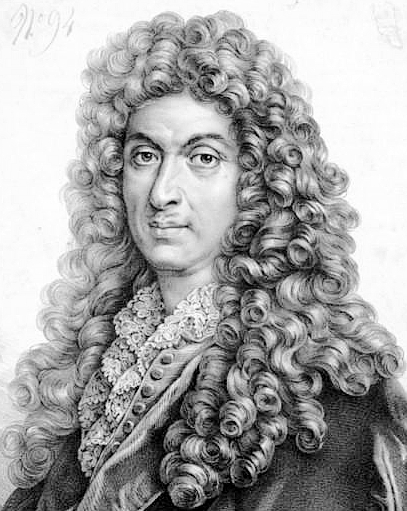
Giovanni Battista Lulli was born on 28 November 1632 in Florence, capital of the Grand Duchy of Tuscany. His father Lorenzo Lulli was a miller, his mother Caterina del Sera the daughter of a miller. A Franciscan friar took the boy under his wings, gave him music lessons and taught him how to play the guitar. Then the violin.
By 1645 or 1646, Giovanni showed his musical skills off frequently. He had a sort of natural gift it. Dressed as Harlequin during Mardi Gras he amused bystanders with his clowning and his violin. Around the same time, Roger de Lorraine, Chevalier de Guise, made a stop in Florence as he returned from a campaign against the Turks.
His niece Anne-Marie Louise d’Orléans, later known as la Grande Mademoiselle, had inquired if it were possible for the Chevalier to bring her an Italian companion. She wanted to improve her Italian this way. Whether he discovered Giovanni himself, or the boy was recommended to him, is not entirely clear. But fact is, Roger took Giovanni to Paris with him.
Aged fourteen, Giovanni entered the service of Anne-Marie, cousin to Louis XIV. Giovanni was quite entertaining company, but la Grande Mademoiselle found him terribly ugly. His job as garçon de chambre did not only revolve around keeping Mademoiselle entertained by chatting to her or playing the guitar, Giovanni also had to keep her garments in order, the fireplaces burning and light the candles at sun set. There are worse jobs. Working for Mademoiselle, gave Giovanni a chance to improve his musical skills. She had her own musicians, six violins, who had the reputation to be better than the King’s twenty-four violins. Giovanni learned how to play the harpsichord, about musical compositions, and improved his violin and guitar skills. On top of it, as it was noticed that Giovanni was quite a skilled dancer too, he received dancing lessons.
As part of Mademoiselle’s Household, Giovanni was affected by her exile as well. Anne-Marie participated in the Fronde and like everyone else who had dared to rise against the King, she was no longer welcome at court. Mademoiselle went to the country, Giovanni followed… but the latter had no interest in country life. Thus asked to take his leave. Mademoiselle granted it. After five years, 1647 to 1652, in her service, Giovanni returned to Paris… and there was no stopping him from that point on.
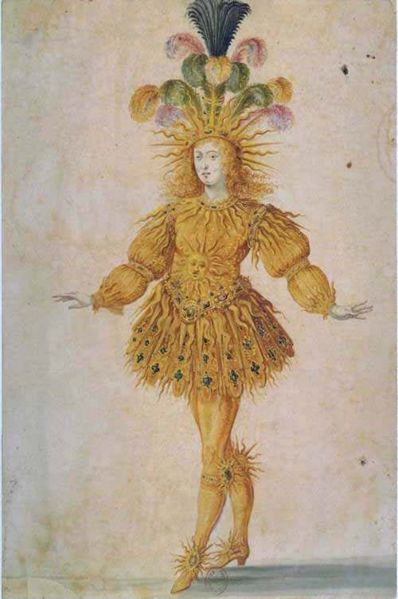
Giovanni turned into Baptiste, receiving the nickname le grand baladin. In March 1652, he starred in the role of a merchant at the Mascarade de la foire Saint-Germain. In 1653, he starred as shepherd, soldier, beggar, cripple, and grace in the famous Ballet royal de la nuit. The one in which Louis XIV first appeared as image of the sun, bringing light, wealth and security to the post-Fronde France.
Lully’s dancing skills, which were described to have an unusual air, brought him the attention of the gentlemen writing for various newspapers. Usually, dancers were not something they payed much attention to, but this Baptiste, as they called him, was something special. Louis XIV was equally impressed by this Baptiste. So much that he made him compositeur de la musique instrumentale by March 1653.
Something like a friendship developed between them. He often danced at the King’s side and impressed with little pieces of music he wrote, like an Italian concerto for the Ballet de Psyché. Baptiste was a music-wise a waft of fresh air in a métier dominated by established “old men”. It perfectly fit Louis XIV’s plans. He was a young King with enough self-esteem to plan on taking over the world and for that he needed something that was able to plant that idea into the heads of the rest. Music and ballets, ballets in which he was the great one, bringing peace and glory. A God-like creature sent from heaven to make everything better, gentle and yet ruthless if necessary.
During the next few years, Baptiste wrote piece after piece. His first great success as composer was in 1657 with Amour malade and the next one followed in 1660. After the marriage of Louis XIV to Marie-Thérèse d’Autriche, both celebrated a grand entry into Paris. Baptise wrote a Jubilate Deo for the occasion, which was performed in presence of King, Queen, Monsieur and Anne d’Autriche. In order to celebrate in style, Cardinal Mazarin invited the leading Italian opera composer Francesco Cavalli to Paris. He was to write a glorifying opera to be performed during the wedding celebrations, but he did not manage to finish it in time. Thus a other piece had to be performed. It was Xerse, for which Baptiste wrote the ballets. In contrary to Cavalli’s Italian style, the parts for which Baptiste was responsible, were rather modern and French…. thus easier to understand for the French audience. Cavalli was not the first one to perform a Italian opera in France, yet the audience had little appreciation for the foreign language opera, lasting almost nine hours, and celebrated Baptiste’s dance music instead. Ado about it was in every newspaper, while there was hardly a mention of Cavalli at all.
Upon the demise of Cardinal Mazarin, who had supported many Italian artists, plenty of them left for their native-lands. Baptiste stayed. By now, he felt more French than Italian. On May 5 in 1661, not yet two months after the Cardinal’s death, Louis XIV made Baptiste Surintendant de la musique du roi.
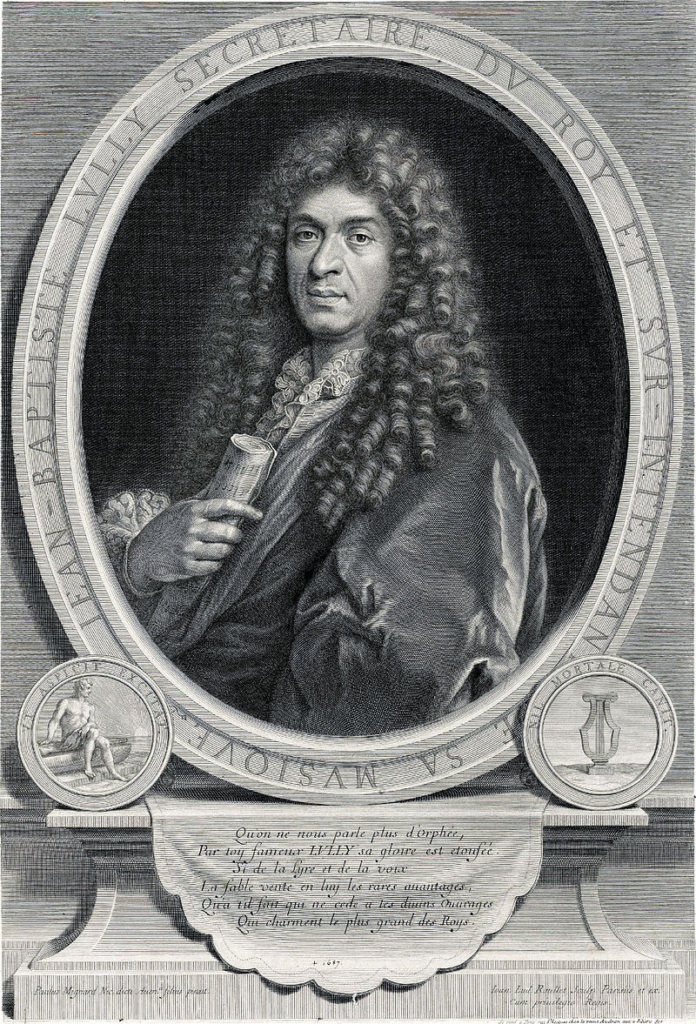
In December 1661 the Florentine was granted letters of naturalisation and called himself thus Jean-Baptiste Lully, escuyer, fill de Laurent de Lully, gentilhomme Florentin. A wedding followed shortly after. He married Madeleine Lambert, daughter of composer Michel Lambert.
The same year, Lully worked for the first time with Moliére. They were already friends as Moliére had a bit of a panic attack regarding his play Les Fâcheux. He lacked actors for it, but Lully saved the day by suggesting to add a bit of ballet between the scenes, in order to give the actors he had enough time to change costumes…. it worked out well and was the birth of a new genre. Their newly invented Comédie-ballet became all the rage at the French court and more collaborations followed, like Le Mariage forcé, Le Bourgeois gentilhomme or George Dandin ou le Mari confondu.
But Lully wasn’t always easy to deal with… nor was Moliére. They produced one successful piece after the next until 1671, when they got into a bit of a fight. For the celebrations regarding Monsieur‘s second marriage, a ballet was ordered and both teamed up again. While working on it, they got into a big disagreement and it pretty much ended their friendship.
As the first French opera, Pomone, was performed in 1671 it made Lully equally inspired and angry. Said opera was a big success, which was not expected, and Lully wanted some of that for himself. It was written by Robert Cambert, former Superintendent of music to Anne d’Autriche, who founded the Académie Royale de Musique in 1669. Cambert worked together with Pierre Perrin and Lully managed to get the opera privilege from the latter. He also replaced Cambert in the Académie Royale de Musique.
With that, Lully held the monopoly in matters of opera, meaning he was the only one to perform those. Thanks to Louis XIV, he also managed to claim various music rights, which thus meant that before any piece of music could be performed, Lully had to give permission. If he did not and the music was performed nonetheless, Lully could lay claim to the instruments, income and costumes.
This was a big slap to the face of his former buddy Moliére. For Moliére it meant in fact that all the words written by him for which Lully had composed music, were now the property of Lully. The whole thing didn’t go well with many musicians and a lot of them left France. Lully wasn’t too bothered by it. He spent his time with composing opera after opera.
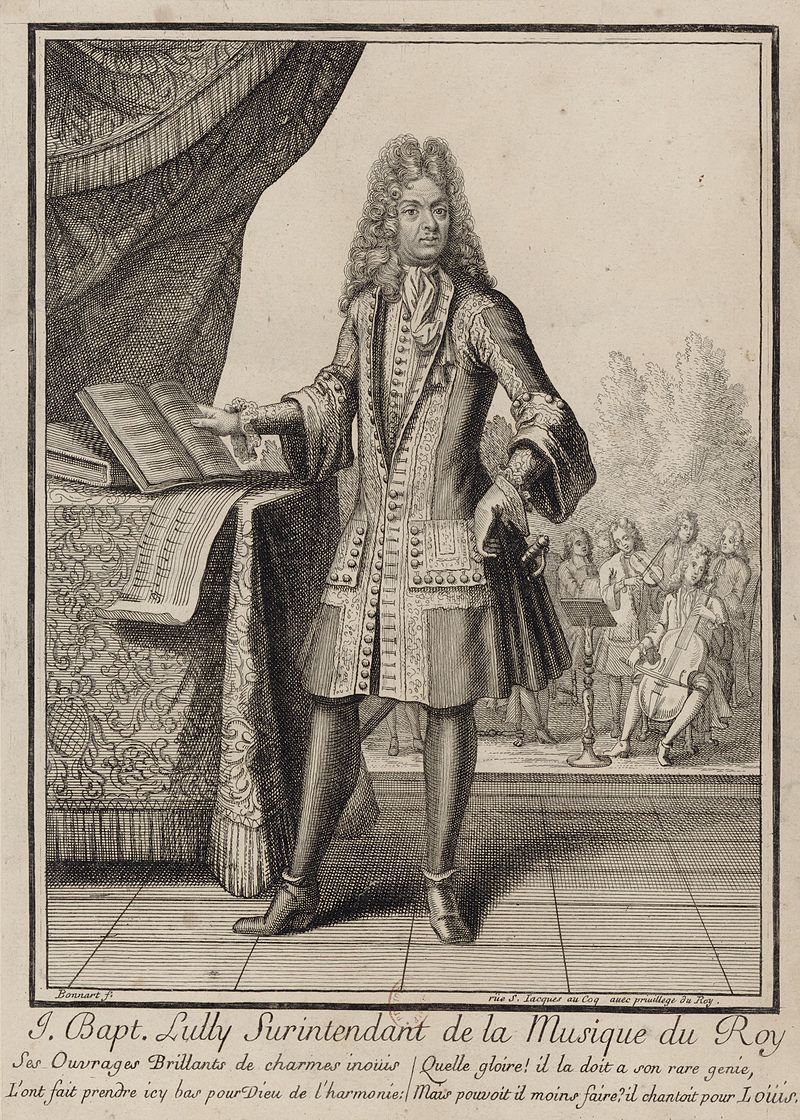 Nothing could stop Lully for pretty much the next ten years. The influence of Lully’s music produced a radical revolution in the style of the dances of the court itself. In place of the slow and stately movements, which had prevailed until then, he introduced lively ballets of rapid rhythm, often based on well-known dance types such as gavottes, menuets, rigaudons and sarabandes. Lully’s music is known for its power, liveliness in its fast movements and its deep emotional character in its slower movements and he pretty much created French-style opera as a musical genre.
Nothing could stop Lully for pretty much the next ten years. The influence of Lully’s music produced a radical revolution in the style of the dances of the court itself. In place of the slow and stately movements, which had prevailed until then, he introduced lively ballets of rapid rhythm, often based on well-known dance types such as gavottes, menuets, rigaudons and sarabandes. Lully’s music is known for its power, liveliness in its fast movements and its deep emotional character in its slower movements and he pretty much created French-style opera as a musical genre.
But all good things come to an end. Lully’s star did not shine half as bright anymore in 1685. In public, Lully liked to act like a great nobleman. In private, he was a proper debauched libertine and had an affair with a valet. A young boy named Brunet. Louis XIV heard of it, as well as Lully’s taking part in various orgies of the men-loving kind. It ended with a big scolding for Lully and a cold-shoulder treatment from Louis XIV.
Jean-Baptiste tried his best to get back into the good graces of the King by loading every composed piece with even more praise, but it did not work out. His music was still magnificent, but the King was done tolerating Lully’s unseemly behaviour. The court had changed. It was no longer the court of a dancing King and the music that was played had religious undertones. Lully was less important to his King.
The Sun King did not wish for Lully’s new opera Armide to be performed at court in 1686. A clear sign of his displeasure. The next year, Lully died.
In a last attempt to regain his favour, Lully decided to have his Te Deum performed to celebrate the King’s recovery from surgery. He paid for all expenses himself and hired 150 musicians to perform the piece at the Église des Pères Feuillants… while doing so, he hit his foot with either a long conducting staff with a pointy end or his walking-cane. The wound did not look too serious in first, but got infected shortly after. Amputation was suggested, but Lully refused. He was a dancer and a dancer can not dance lacking toes, or even the whole foot. Thus the infection spread slowly through his whole body. He died in Paris on 22 March 1687 and was buried at Notre-Dame-des-Victoires.

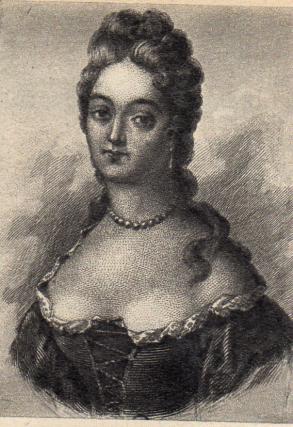
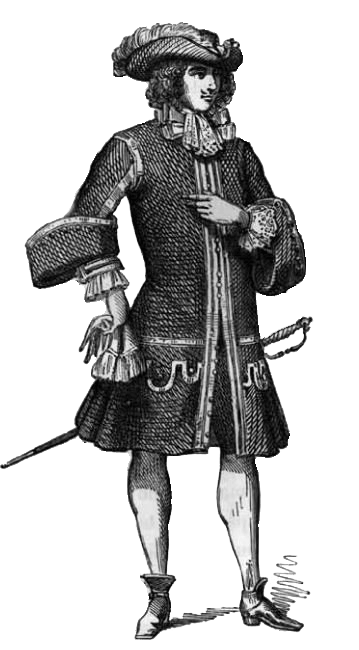
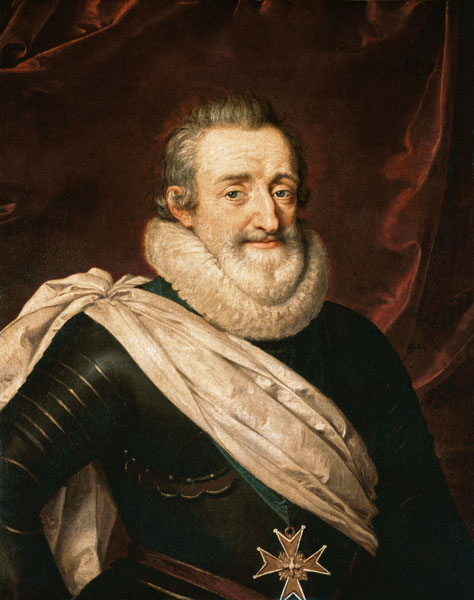
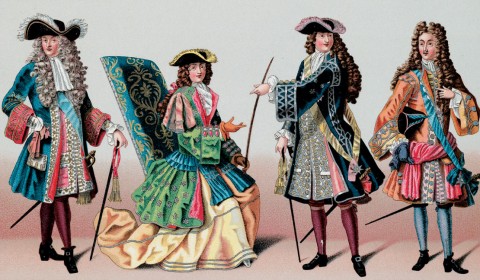
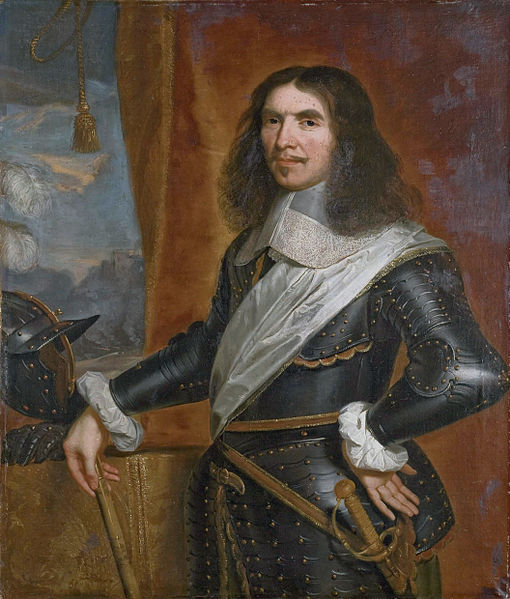
One Comment
Tess
He injured himself (fatally as it turned out) during the celebration of the King’s recovery. Life has an ironic sense of humour though…